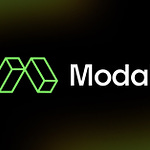There’s a big opportunity for category creation when a tectonic shift has elevated the importance of a particular role.
This was exactly the opportunity we had at Gainsight: the explosion of the SaaS ecosystem propelled the population of Customer Success Managers, who were now essential for driving Net Dollar Retention at most SaaS companies.
Today, the advent of LLMs has increased the focus on content, thereby positioning Product Marketers, the owners of that content, as the strategic drivers of marketing campaigns.
Derek Osgood, the CEO and Founder of Ignition, believes that Product Marketing is the new hub of Marketing teams. In this episode, we discussed:
Why have so few big marketing tech companies been created in recent years?
How has AI changed the way marketing teams operate, and therefore also changed the best-in-class marketing tech stack?
What are the new best practices for Product Marketing teams?
You can listen to the conversation or else read the lightly edited transcript below. Enjoy!
If you’d like to hear from other Founders/CEOs about emerging AI categories, subscribe for free here!
Transcript
Allison: Derek, I am so excited to have you on the podcast today. Thank you so much for joining.
Derek: I’m so pumped to chat, Allison. I’m really excited to dig into all this stuff.
A: To start off, why have so few prominent marketing tech companies been built recently?
D: T.C. Winters actually has an old quote where he was talking about how all MarTech is actually built for engineers. And that's because MarTech mostly has popped up in recent years around the actual tactical channels that are being used by marketers. And it’s sitting around the edges of what's going on with marketing.
In recent years, channels have actually become much less important. The tactics that you're using were incredibly important in the early 2000s and through the early portion of the 2010s, because there was a big explosion of channels that happened when the internet came around. And it used to be that back in the ‘80s and ‘90s, everybody was competing on the exact same channels. You had TV, you had out of home, you had a couple of channels that every company was playing on. The way that you stood out was better positioning, better storytelling, better strategy, more integrated campaigns, and better creative.
Then the internet came around, all these channels popped up and everything fragmented. Just by playing on channels that other people weren't on, you could get really outsized returns. The fact that all these channels were fairly new meant that there were a lot of arbitrage opportunities within the actual channels from a technical perspective, too. So, just knowing how to target people appropriately on Facebook ads would give you much better returns than your competitors.
But all the platforms have consolidated. So, now there are only a couple of digital platforms that are really worth playing on anymore. All the companies have evolved and now they're all playing on those same platforms again. On top of that, even the platforms themselves, like Facebook and Google Ads, have hammered out a lot of those technical arbitrage opportunities.
So now it's really important again to focus on the core fundamentals of marketing and the strategic planning—getting the right messaging, positioning, creating quality creative.
The MarTech that has been been popping up has been historically built around the tactical edges. It just hasn't solved for that. And so the way that marketers are approaching marketing has shifted back towards the fundamentals. And MarTech just hasn't really caught up with that.
Also, marketers have been burned by a lot of MarTech that is just not really built around the way that marketers think. They do really think about that strategic planning upfront before they start getting into the tactical execution. And none of the MarTech that's been built in recent years really touches on that.
A: It's a great explanation. It strikes me also that one of the major changes that we've obviously experienced in the last year is the introduction of a new technology platform — large language models. How are LLMs changing the way that marketing teams operate, and what does that mean for the software they should be adopting?
D: Right now, marketers are drowning, obviously, in the sheer amount of content that they need to create in order to keep up with all of the different tactical executions that they're doing. And so obviously the first place that marketing teams have started to adopt AI has been in content creation. They use it to write this huge volume of copy that they need to create. It's evolved to take a lot of the long tail work off of the marketing team's plate.
With the types of content that marketing teams are creating, oftentimes there are core strategic assets like a landing page or a blog post or a video. Then there's a much longer tail of stuff around search ads, for example. You have to create thousands of variations of the same ad in order to perform effectively there. And so they've been using AI to cover that long tail so they can focus much more on the upfront strategic planning work and the core assets.
AI has been infusing itself a lot into data synthesis as well. You need to figure out how to take large quantities of customer feedback and start to parse that into something that's a segmentable set of trends and insights that you can use to inform your planning. This has taken a lot of the day-to-day executional work off of marketing teams' plates. And it started to allow them to tap into more of that shift back towards a much more strategic approach that I was mentioning in that first answer.
A: One of the big complaints I've heard about LLMs is that, particularly for business users, it can be hard to figure out how to incorporate LLMs into your workflow. Why is that hard, and what is the solution?
D: It's like a classic white page problem in many cases. When people try and do this stuff through ChatGPT, for example, you have to know the right questions to ask. And you have to have a really, really clear view of what you're trying to accomplish. And marketers, more so than most other roles, are really good at adopting AI through that chat interface because it resembles briefing so much. It's the same briefing exercise that they're following day-to-day when they're briefing creative agencies, for example.
The problem is really the AI that exists today. There are some of these companies that have put a wrapper around the LLMs. There's the Copy.ais of the world, for example, that make it much easier for you to input and get copy out.
But all of these tools are still really struggling with the core assets. And LLMs are still not great at writing content. They’re definitely not great at writing strategy. And they're still not great at doing that core foundational work. But they're really good for all the long tail, short-form stuff. But because all of these things are very disconnected from the actual core strategic kernels that marketing teams are working off of, their core positioning, messaging, etc., it's really hard for them to actually create things that are on brand and on message. They're trying to weave it into their workflow, but it's also easy to forget that you can use AI. It's a behavior shift.
You're trying to go from writing this thing yourself for the last 10 years, to having to think about how to have ChatGPT write it because it's faster. But you have to have that trigger in your workflow to remind you to actually go use it. I catch myself forgetting to actually use AI tools when they're available to me, just because I have built a 15-year habit not using them.
A: There's so much demand for AI. If you go into a typical boardroom for a public or late-stage private company nowadays, companies are very excited to present to their board about all the AI products that they're adopting. At the same time, even though there's all this demand, there's also a lot of concern, particularly among larger companies, about the security risk involved in this. Namely, the idea that employees might be sharing confidential data with external LLM providers. What's the way that marketing teams should navigate through the huge budgets that they're potentially being allocated to AI, but then also the concerns from the board and C-level execs?
D: It seems like all the conversations I have are very black and white. Companies are either just outright banning the use of AI within their company because they're so worried about the security concerns or they're just allowing everybody to go willy-nilly with it. Obviously the LLMs themselves are starting to release much more enterprise security controls. OpenAI just released their enterprise version of ChatGPT, which does actually gate content from feeding back into the model. And so the LLMs are solving for a lot of these issues on the backend.
In Ignition, we use a lot of Google Vertex, which is built privacy-first. So, no information is feeding back into the model through the integration that we've got.
Although the security risk is there, the bigger risk is actually misinformation. The bigger risk is the fact that these models still do hallucinate a lot. And then there are accuracy problems, which is not really a problem when you're talking about just a generic marketing campaign for a CPG product. But when you start talking about healthcare companies, they are subject to HIPAA and they're subject to other regulations, so you don't want all of your customer data to actually appear in that output from the model. They're also subject to a lot more regulatory scrutiny on the actual claims that they're making. So AI starts actually becoming really dangerous for them, not from a security perspective, but from a regulatory perspective and from an accuracy and communication perspective.
So companies are probably under-indexing on that and over-indexing on the security concerns because the security stuff is getting taken care of already by the platforms.
A: We've talked about the inadequacies of the marketing tech stack historically and how not that many great marketing tech companies have been created recently. We've talked about how AI is changing the possibilities for what tools marketers are using. Nowadays, what would you say the best-in-class marketing stack looks like? And also obviously you're building a marketing tech company, Ignition. So it'd be great to understand how you think Ignition should fit into that stack.
D: Ultimately, it's almost impossible to answer this question succinctly because marketing's become such a sub-segmented discipline now. You have 15 different teams within one marketing team, and there's so much tactical MarTech used across each of those different sub-teams. The real best in class MarTech stack is 40 tools.
But when I think about the core bits and pieces to that, obviously I view Ignition as the core platform for all things internal. So, you're doing your research, you're collecting your customer and competitive intel from all these different resources across your organization that we're integrated into. You're doing your core strategic planning. You're taking the handoffs from the product team, turning that into a go-to-market planning motion, communicating that across the rest of the organization. You're creating all of your content from your core strategic plans. We take your positioning, we'll use AI to generate the content that feeds your campaigns, and then you're using us for your enablement and digital asset management.
So, we become the central repository for all marketing plans, knowledge, content that is really easy to push outwards to the rest of the organization. But once you start talking about to start translating that into customer facing execution, there are some great tools popping up today.
I actually just talked to Anthony Kennada from Gainsight, who you’re friends with. He's building a platform called AudiencePlus. It's an absolutely killer platform when it comes to managing your own media communication and how you're actually translating that content that's created, for example, in Ignition into a blog and into then customer-facing communications around that blog and the content that you've created.
When you're talking about CRMs, customer communications, Intercom and HubSpot tend to be the standard stack. I really like Segment as a central CDP to manage all the customer-facing information and create a central source of truth for your specific customer data that can feed all these different platforms and create a much more unified experience and view.
Then there are a ton of tactical tools for the actual channel management itself. Oftentimes, teams over-index on channel management tools for their ad platforms. For example, oftentimes I've seen the best marketing teams get the best performance. They're just working straight out of the ad platforms themselves. They're not actually using any of these additional MarTech tools to sit on top of it.
But typically you have a CDP, some kind of analytics tooling, some internal planning tooling, some content creation tooling, which is mostly Ignition, and then a couple of platforms for marketing automation that's customer facing. And between those, you're pretty well covered.
A: Given what you said about the number of tools that best in class marketing teams tend to need to use, and my own thoughts on how lean marketing teams tend to be relative to their impact, do you have a rough sense of what percentage of a marketing team's total budget should be spent on headcount versus tooling?
D: Marketing teams probably spend too much on headcount and too little on tooling, despite the fact that there is this huge landscape of MarTech and marketing does actually buy a pretty significant amount of tooling. I've been a part of many marketing teams and I've talked to many marketing teams. Because of the breadth of tools that are out there, a lot of them don't even have good perspective on what is even possible for them to automate because there are so many things that you can do. It's hard to actually keep on top of the landscape of what's possible. But automation can solve for a lot of these things, especially as we start talking about AI and content creation, for example.
I'm guilty of this too. I'm a bit of a marketing snob with my content. So I don't love to use AI for a lot of my use cases, but I should use it more because it’s capable of creating pretty good content.
A lot of marketing teams are still going through that mindset shift. Maybe they don't need to be spending a million dollars on a creative agency over the course of this year. They could actually be allocating that budget towards some tooling that can solve for maybe not all of it, but it can solve for 60% or 70% of that. And then their creative budget with the agency can drop significantly.
A: It's interesting what you said about reallocating budget from agencies toward AI or tooling. Do you think that AI affects primarily that part of the budget? If you were to look at a marketing team and how it spent money maybe six months ago, and then how it might spend money six months from now, is it that they're shifting the budget from agencies to AI?
D: When you talk about the creative component of it, absolutely. That's primarily where the budget is coming from. You're talking about content creation budgets, which are moving from freelancers and agencies towards internal tools. When you start talking about the research budgets and how you're actually using AI to synthesize data, that gets a little fuzzier. Oftentimes it's an incremental spend as opposed to shifting spend from existing tools or headcount. That incremental spend though, ends up making all of those other teams that are currently operating in the marketing team dramatically more effective. So, it's typically worthwhile for those companies. But when you talk about the content creation component, that's mostly coming out of agency budgets.
A: Very interesting. So let's say that you've got your best in class marketing stack, all the things we've talked about. You're using AI, you're using Ignition specifically. What's possible, then in terms of what the highest standard for product marketing looks like?
D: Product marketing when done well, actually looks very different. Most companies don't do product marketing well. When done well, it actually looks far more strategic than most companies make it. It resembles much more of a GM role. And it looks like the product manager of the marketing team. It actually owns P&L for its product lines. It's driving all of the internal planning.
You're using a much more integrated campaign planning motion and product marketing is really sitting at the center of that. Most companies pigeonhole product marketing into the content creation and the function where it's just writing all the decks and creating all the stuff that feeds the campaigns.
Then it's sitting around the fringes acting as an enablement function, trying to plug gaps. This ends up resulting in very disconnected tactical execution and cross-functional teams or cross marketing just pulling in a bunch of different directions with no real central source of truth. There’s no real central orchestration layer.
The product marketing teams that I was a part of at PlayStation, for example, and you're starting to see this with Airbnb, are re-orging their product management team into product marketing. Companies are starting to realize how important it is to actually have this role sit at the center of marketing and have all of their teams not necessarily report to it, but at least drive planning decisions through that team and have it act as an approver to be able to ensure fidelity of messaging positioning. And also how the campaigns are getting orchestrated and turning into a much more cohesive, integrated motion. So it's much more of a budget owner, as it sits today in a lot of companies.
A: This is very interesting, particularly because it reminds me of the ways in which we tried to elevate the customer success manager role at Gainsight. Actually, there might be a similar analogy in that we were saying CSMs are almost like a general manager for the customer, helping to orchestrate the customer journey and enabling other functions to participate seamlessly as an orchestra working together along that journey. So, it's fun hearing a similar concept in a related, but different space.
Let's say you're a product marketer. You believe that your job is to orchestrate strong campaigns, and that's the central component of your work. What does a great campaign look like?
D: For one thing, it's fully integrated campaign planning. Where a lot of marketing teams get this wrong today is they've created all these vertical teams around specific channels and buckets of tactical activity. And so you have growth teams that are working on product stuff. You have content teams that are working on content and known media. And then you have social and paid teams that are working on paid social, but none of those teams really coordinate effectively together. So you have tactics happening over here, tactics happening over here. With real good campaign planning, you're actually thinking about how the paid media is contributing to capture through the owned media, which is then contributing to capture down funnel in your actual onboarding funnels. And so you're actually thinking about this whole buyer journey end to end, which it's just organizationally impossible to do when there is no central planning team for these campaigns.
When it's fully integrated like that, you're thinking about how these channels interact as opposed to how these channels operate in a silo. And then also they're much more like multichannel. You're using all of the different channels available to you across paid or the known to drive that full buyer journey. And they're much more well researched also. So a lot of marketing teams will oftentimes watch a campaign just off gut feel, and they'll create some hypotheses and they want to test it. But they don't actually ground it in any actual customer research or competitive research. And they're really just doing a thing because they had an idea instead of actually being strategic about it and creating a hypothesis based on some real deeply rooted insight. And they're also just inconsistent on creative execution. So great campaigns, they feel like the exact same campaign everywhere all at once.
And so you're seeing consistent creative, consistent messaging. There's a thematic that maybe draws over a much longer period of time. You may be doing a quarterly thematic where you're running a campaign that everything that you do rolls up into that strategic narrative. And companies right now, they're just so focused on running around getting specific tactics just done and ticking boxes that those cohesive campaigns have just fallen by the wayside.
A: So let's say you're mastering these best practices for campaigns. You're doing well as a product manager. What is your career path potentially look like?
D: Frankly, I think it's the fastest path to CMO. You're seeing many, many more CMOs come up through product marketing backgrounds than you used to. If you looked at the 2010s, most CMOs were coming up through growth marketing because that was the hot concept at the time, again, where you could get outsized returns as marketing team, more from tactical execution, really having a good handle on where the arbitrage opportunities are within all these different channels.
Now, because of that shift back towards the fundamentals and because companies are realizing how much you just need somebody who has broad based understanding of how all the different marketing components fit together, you're seeing many, many more folks come up through product marketing into CMO roles.
A: Given this centrality of product marketing to the marketing team and the fact that you think it's maybe the best path to becoming CMO, do you think that it's so pivotal that actually your first marketing hire as a founder should be a product marketing person?
D: 100%. The tricky thing is that it’s tough to find product marketers who actually fit the early stage startup profile because it’s a strategic role. Obviously, early stage startups are in a mode where they’re trying to be as strategic as they can. But there are a lot of things that you just have to get done. And a lot of that is the understanding of those channels, and it’s a lot more of the tactical execution.
So, you need to find product marketers who actually understand growth and that can pinch hit enough on the growth side of the house to be able to survive that early, early, early portion of the startup’s lifecycle.
But product marketers should always be your first hire. They're the ones with the most broad-based experience across marketing, so they can cover a lot more ground than what most specialized marketers that you're going to hire are able to do. They also are going to help you solve for a lot of that foundational stuff around positioning messaging that really unlocks all of your early product market fit.
A: So we're coming to the end of our episode, Derek, which I'm a little bit sad about because we probably could keep talking for a while. But in closing, what's one final tip that you would have for marketing teams?
D: Obviously, I've been touching on this quite a bit via this talk, but it's time to quit thinking about things like so tactically and start to level up and think actually much more strategically and in aggregate around how your marketing campaigns are working. Instead of thinking about what is the checklist of things that you need to get done in this day, week, or month, instead really think about how what you're doing is interacting with the other people across the marketing team’s activities.
Rather than a cross-functional view, have a cross-marketing view. That’s really how you end up driving true results. And teams need to just get better at that.
A: Be more strategic, less tactical. Thanks Derek, so much for joining us today.
D: Thanks so much for having me.











